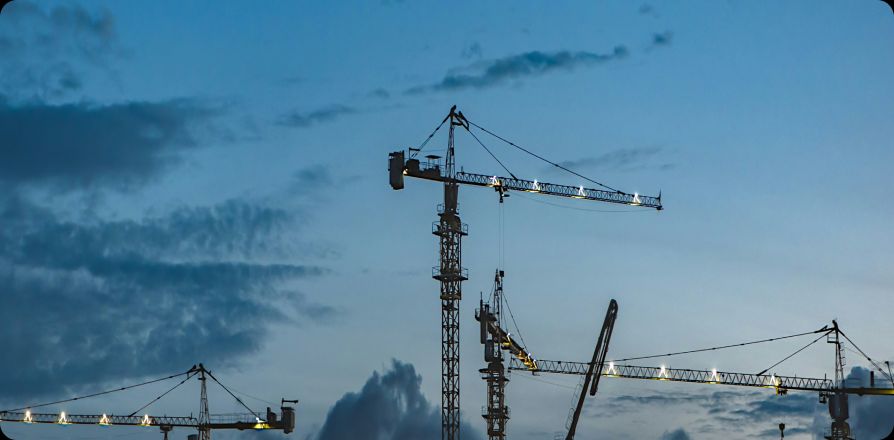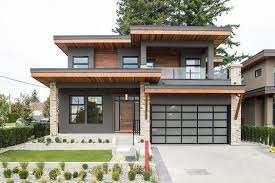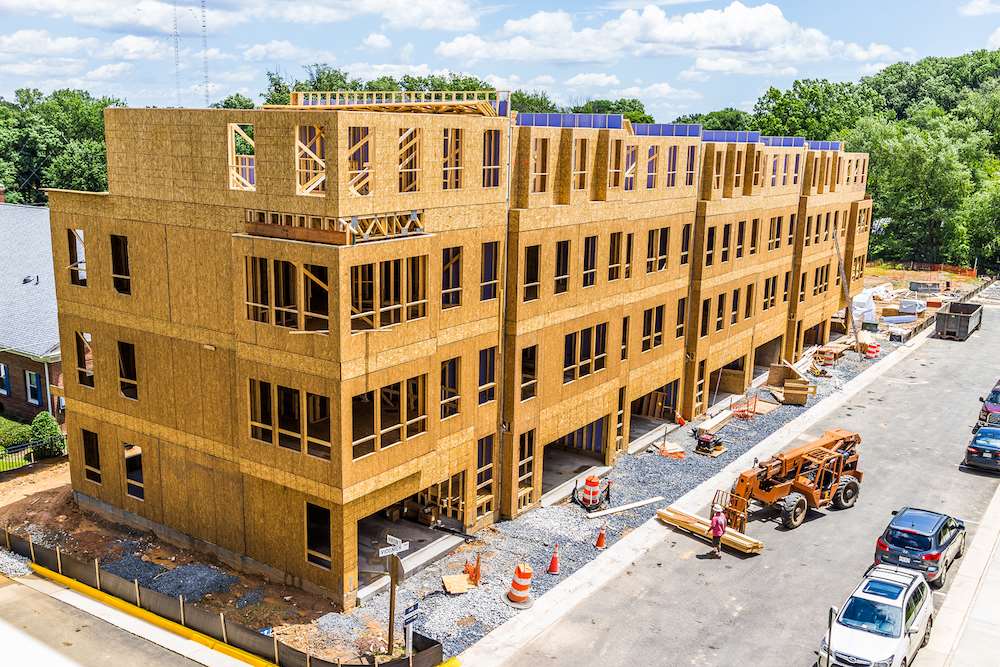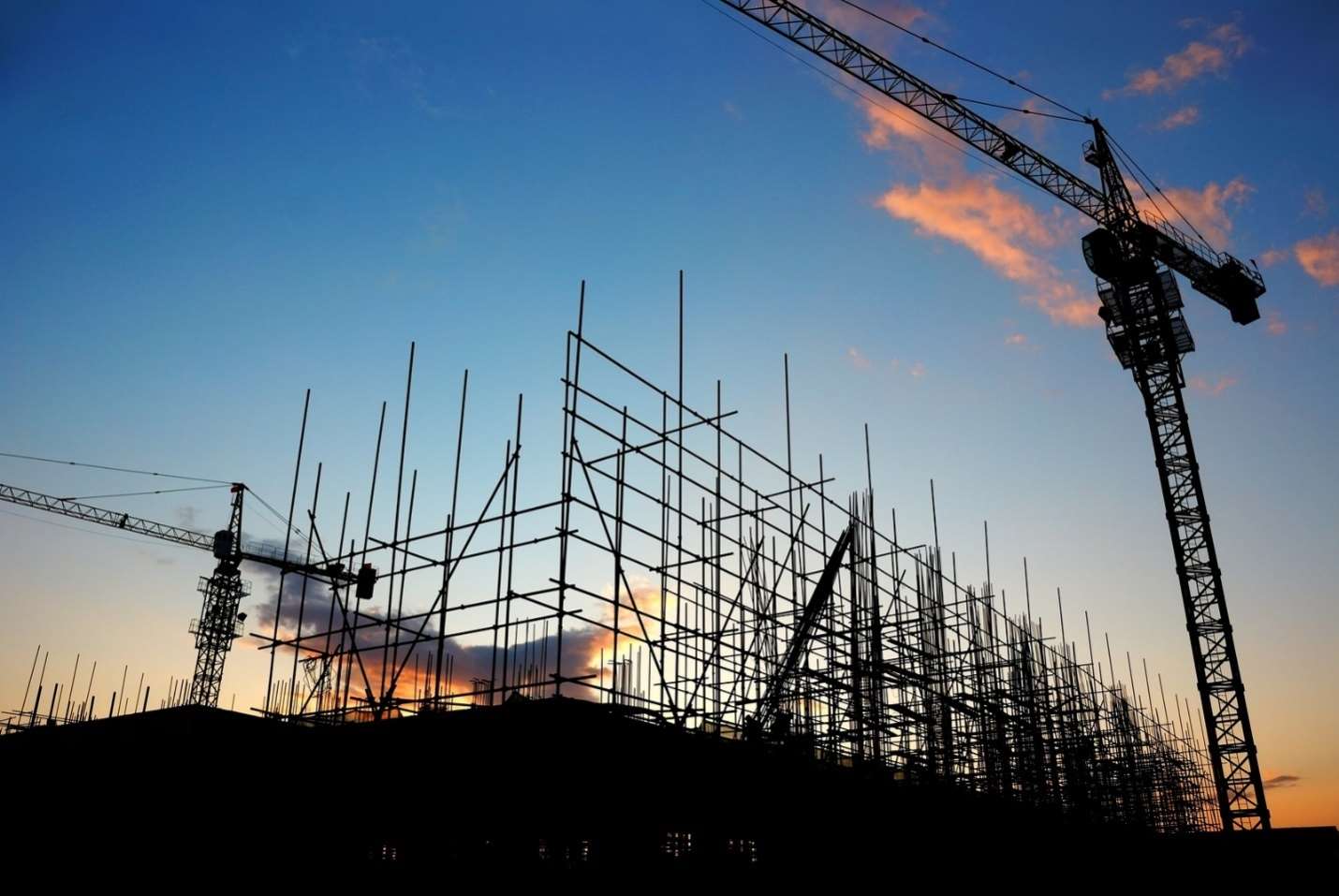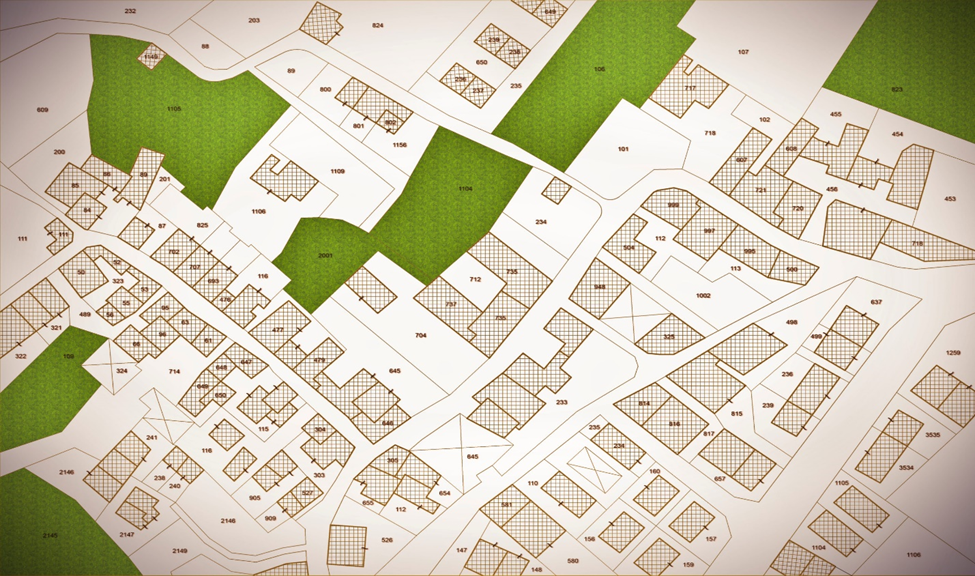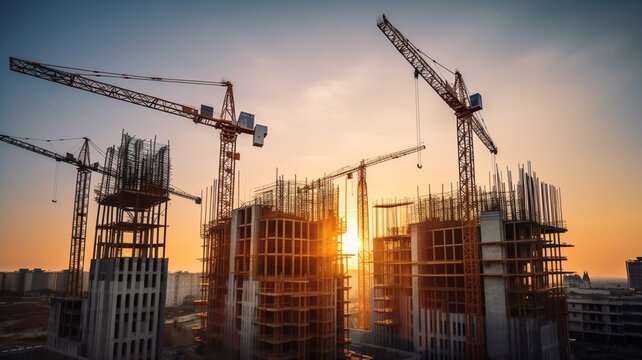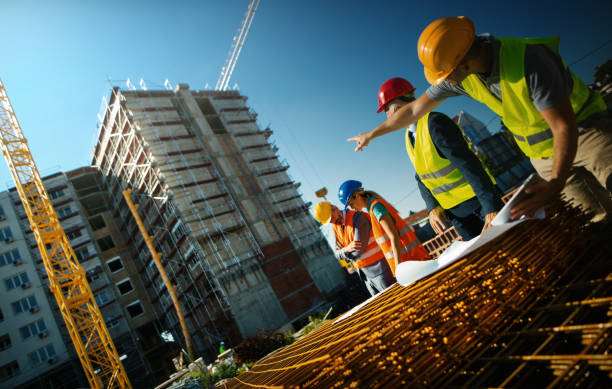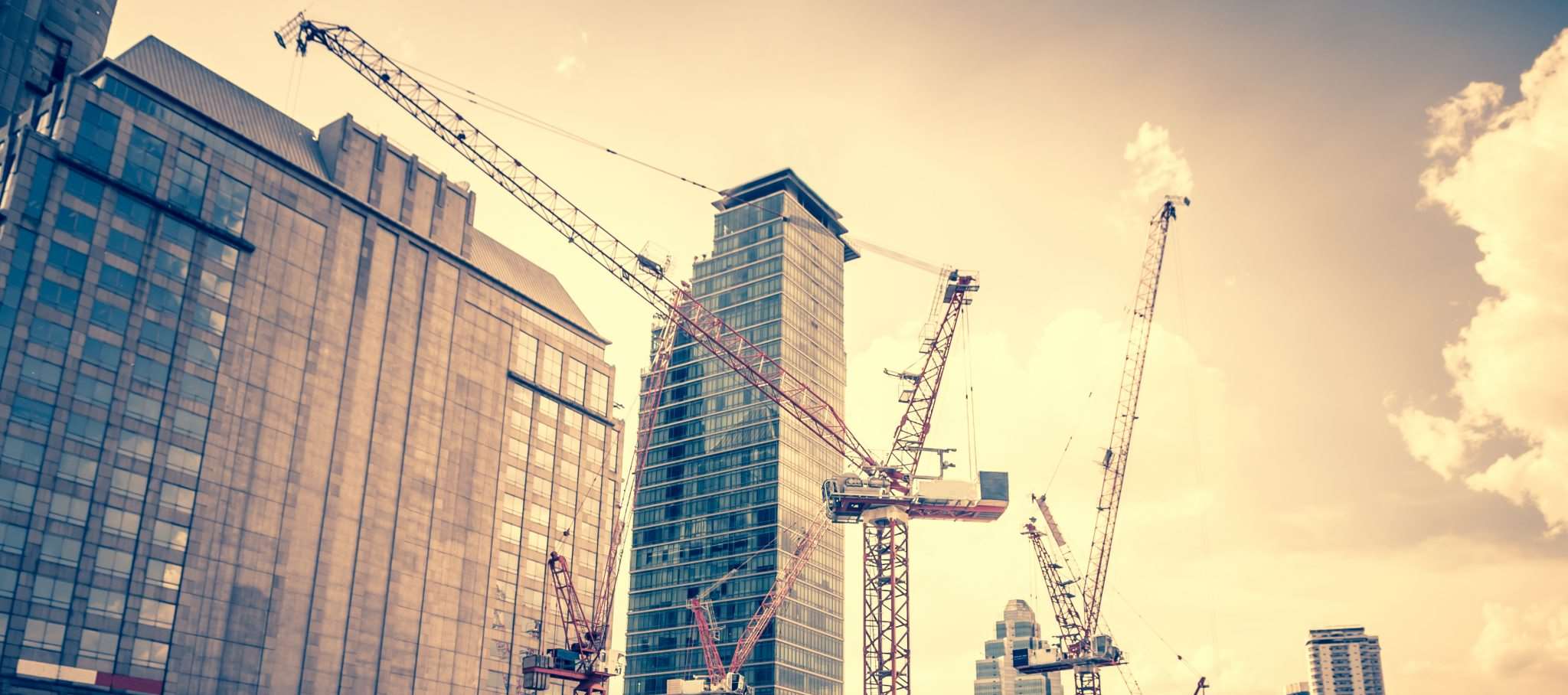
At our company, we will focus on commercial construction, building the functional yet aesthetically pleasing spaces that drive business success. Commitment to quality will mean we satisfy unique needs while achieving improved results that add to the operation of our clients.
Types of Commercial Buildings
Office Buildings: Office buildings, depending on community needs and developer investment, can be from single-story structures to tall skyscrapers and are necessary for businesses. These buildings may be a single company or multiple tenants, with the office spaces available for rent. Design and layout can vary depending on specific requirements by occupants for an efficient working environment.
Restaurants: Restaurants are another fairly common type of the commercial building we construct. Such structures may either be owned by restaurant operators or rented to them, regardless of whether a restaurant belongs to a chain, is a franchise, or is independent.
Restaurant buildings could be devised to custom-fit the specific brand requirements or designed to accommodate a variety of restaurant tenants. This would give us much flexibility in services to clients.
What sets apart restaurant spaces from the rest of commercial buildings is the more complex requirements, primarily in respect to their kitchens and dining areas. All of our designs will include all the infrastructure that ventilation, plumbing, electrical systems, etc require in
Retail Spaces: Retail spaces are the most obvious category of commercial buildings and may be the first thought when talking about commercial properties. This category includes a wide variety of different retail establishments that range from large box stores occupying expansive warehouse-style buildings to much smaller shops within multi-tenant buildings.
Configurational Flexibility: Retail structures can be configured to accommodate one or a number of retail tenants, like in strip malls. This makes it easy for us to meet the different needs of our various clients.
Street Front Access: Retail buildings are characterized by street front access through the storefronts for the customers. In some other cases, like shopping malls, access might be through internal corridors, which makes it easy for people to move from one retail outlet to the other.
Warehouses:Our company will focus on designs and construction of warehouses to fulfill multiple needs of various businesses. Our warehouse solutions have become significant to all sectors since they offer a large space with efficient storage and distribution.
Custom design and construction: Our design and construction effectively collaborate with clients for a completely customized warehouse, answering all the individualized needs required by our clients for the desired efficiency and performance. From small storage facilities to large distribution centers, we take care.
Own or Leasing: This is own or leased in hotel property depending on either investment strategy, the locality, or even market situations.
Industrial:We will give you the total solutions of the industrial buildings in our construction company, which include substantial facilities, such as manufacturing plants, workshop spaces, and specific types of warehouses.
Variety of Facilities: Our industrial buildings can be quite diversified for business operations; they range from heavy industry's buildings for factories to workshops and service centers such as car repair shops.
Handling Hazardous Materials: We will realize that the industrial buildings may interact with hazardous chemicals or materials. Our design and construction processes are emphasized for safety measures as much as in compliance with the rules governing the industry to save the workers and the environment around.
Noise and Risk Factors: Industrial structures often generate noise and pose potential safety risks. Therefore, we take utmost care in locating them at appropriate distances from residential areas. We will thus ensure that they are not too close to residential areas as allowed by local zoning regulations and the policies.
Tailor-made Solutions: We will work closely with our clients to deliver custom-made industrial structures that serve their particular operational requirements and at the same time maximize on efficiency and safety.
Health Care:At our company, we are going to focus on the health facilities' design and constructions and approach this subject matter as a form of commercial building merely by their operational model despite the uniqueness of the purpose.
Range of Healthcare Buildings: We have experience with a broad range of health care projects, from large hospital campuses to smaller clinics. We will adapt our construction solution to fit the specifics of the health care sector from a fully customized hospital designed for a major health care provider to a small clinic located within a multi-use building.
Custom-Built Hospitals: The custom-built hospital facilities owned by the healthcare provider are designed, as large size is a prerequisite for hospitals with special demands in modern medical care, advanced equipment, and patient care spaces, as well as regulatory requirements
Small Clinics: The stand-alone or part of a multi-tenant commercial building small clinics usually lease their space. We shall provide flexible construction solutions that enable clinics to perform their operations efficiently in space while maintaining an increase in healthcare standards as well as patients' comfort..
Patient-Centered Design: We design to create spaces that improve the patient experience while supporting efficient medical workflows. From functional layouts to accessibility features, our healthcare projects are born from a desire to support both medical staff and patients.
Multi-use Buildings:The construction company to be run from our site will concern the construction of multi-purpose commercial buildings, which are as flexible and diverse in their tenant profile, thus making them such an interesting investment for developers.
Multiple Occupiers: Multi-use buildings can accommodate all the types of businesses, including restaurants, retail shops, offices, and even the health facilities. In some cases, they may include the residential units as well, but that is permissible only if at least 51% of the occupancy in the building is commercial tenants.
Advantage of Investment: Multi-purpose properties appeal to investors because they are adaptable. They house different types of businesses, hence there is security because they are not dictated by the performance of a single tenant type.
Efficient Design: We shall ensure that our multi-use buildings are built to be versatile enough to allow infrastructure and layout that will support tenants as diverse as storefront retail to offices and restaurants.
Integrated Spaces: Such buildings are strategically located in the urban regions to allow for convenience and community through the integration of commercial and residential spaces into one area to make them the best for modern urban living.
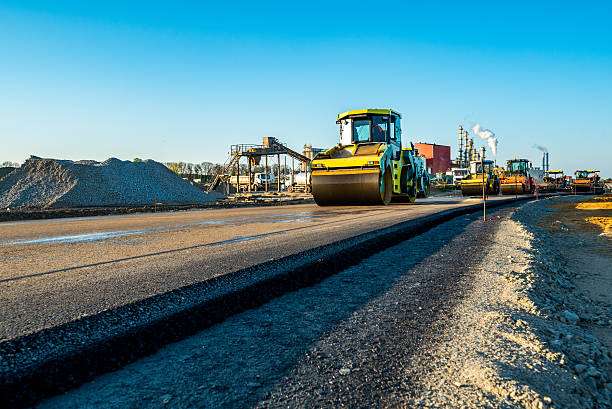
Road Construction:Our construction firm shall offer fully comprehensive road construction services by developing and upgrading the roads to meet all standards for maximum safety and durability.
Scope of Work: Our expertise will be in the construction of highways, streets, rural roads, and pathways, hence supporting both the urban and rural infrastructure needs. We'd specialize in the efficient road networks that support seamless vehicular traffic as well as long-term durability.
Phases of Construction: Multi-purpose properties appeal to investors because they are adaptable. They house different types of businesses, hence there is security because they are not dictated by the performance of a single tenant type.
- Planning and Design : This would start with comprehensive site assessments, traffic studies, and road design that can be aligned to the specific requirements of the project.
- preparation : This is clearing and grading and leveling ground that will establish stable foundation for the road.
- Subgrade construction : It is constructing a strong base layer that ensures stability over an extended period to withstand various traffic loads.
- Layering pavement : It refers to the application of layers of material, such as asphalt or concrete, that are used in creating the road surface. Each layer is strategically put in place to yield durability and resistance against the elements.
- Drainage Systems : In this step, adequate facilities for drainage are installed that will handle the runoff of water from the roads minimizing the impact on roads and making the roads stay for a longer time.
- Finishing and Marking : Once the construction has been done, the road is completed with markings, signs, and other safety measures like guardrails and lighting.
- Techniques and Technology : We will deliver efficiently road projects by employing advanced construction techniques and modern machineries. Producing high-quality material is our focus, so the roads constructed will be up to international standards for safety, longevity, and sustainability.
- Sustainability Focus : We will use eco-friendly materials with the efficient application of energy-conserving methods during the execution of our road projects, lessening environmental impacts in the face of sustainability.
Maintenance and Upgrades:
Along with new road construction, we will provide road maintenance, including resurfacing, pothole repair, and road widening to meet the expanding requirement of traffic.
Maintenance and Upgrades:
Along with new road construction, we will provide road maintenance, including resurfacing, pothole repair, and road widening to meet the expanding requirement of traffic.
Material Used for Road Construction: In our road building projects, the quality materials used make roads last long and work well. Every material is used in accordance with what it finds in the road, the traffic rate, and its expected long life.
- Blacktop : Asphalt is very widely used in flexible roads because it is relatively inexpensive and easy to maintain. People normally choose it for roads that may require repair and resurfacing since it allows for quick and relatively inexpensive repair work. Also, asphalt provides a good ride, hence very suitable for both urban and rural road networks.
- Real : This is quite strong and has been used in roads with high traffic levels, such as highways and large streets. It withstands damage well and is useful when a long-lasting solution is sought. Although concrete roads have a higher initial investment, they pay off later because they will last for a longer period of time.
- Total : Crushed stone, gravel, or sand is very crucial as far as building roads is concerned. Aggregate provides support and stability to the surface of the road due to the layers beneath the road. It aids in drainage and evenly spreads the weight, making it the real foundation of the road.
- Asphalt : Asphalt is widely employed for flexible roads simply because it is fairly inexpensive and inexpensive to maintain. Usually, people use it for roads that they think may require repair or application of new layers since they will be able to correct problems that arise fast and at a low cost. Asphalt also provides a very smooth ride, hence ideal for both city and country roads.
- Concretes : Concrete is strong and, hence, commonly used for roads with more traffic, such as highways and main streets. It will last well against wear and tear, making it suitable for locations where a long-standing solution is needed. Though an initial bigger investment is required for concrete roads, they can prove to be a cost-effective option in the long run.
- Aggregated : Crunched stone, gravel, and sand are just some of the highly important materials that form roads. Aggregates are both the sub-grade and base layers that can ensure stability and support to the surface of the road. It has proper drainage and distribution and thus makes the top portion of the whole road a great place to be.
Types of Roads: Our surveying services help in planning and building different kinds of roads. We ensure accuracy and safety in every project. We will focus on the following types of roads:
- Highways : Highways are essential roads designed to carry fast and heavy traffic. They typically have several lanes as well as few access points to enable easy and quick travel over a long distance. Planning a highway requires careful work to consider safety, traffic movement, and effects on the environment.
- Local Streets : Local streets are mainly used for residential streets and even in city areas providing direct access to the homes, business, and to the neighborhoods. These roads are designed to be traveled at slower speeds and relatively light traffic, so our surveying services ensure that the local streets are designed properly for safe efficient moving of vehicle and people.
- Gravel Roads: Gravel roads are often laid in country areas, and it's cheaper to build where paving is not economically viable. Although gravel roads require less investment initially, they are mostly used with a consistent maintenance process that ensures safe driving on them.
